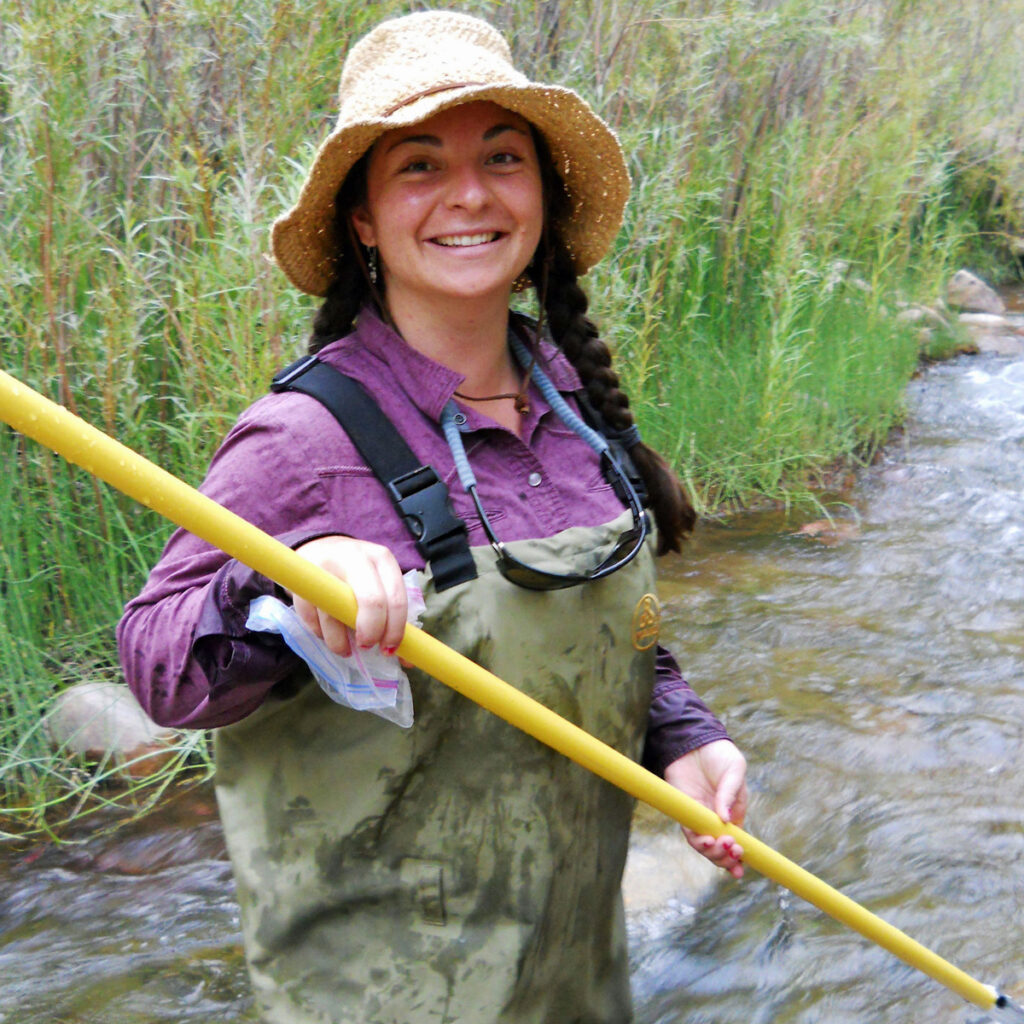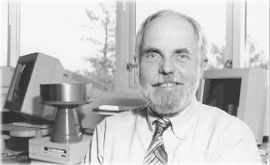About the Avery Intern Scholarship

The Avery Intern Scholarship awards students $4,000 and the opportunity to gain 200 hours practical experience with at least four water resources and environmental organizations in the Flagstaff area.
It’s open to students enrolled in a hydrology-related discipline at any Arizona college or university. Past participating host organizations have included government agencies, private industry employers, and consulting firms. Funding comes from the AHS Foundation.
For more information, see our FAQs.
Important Dates for 2024
Note: The 2024 awards will be presented at a chapter meeting or special ceremony since we are not hosting a September symposium this year (BSMAR18 will be held in April).
- Application deadline: 5 PM, April 15
- Interview dates: Early April; recipients to be announced no later than April 30
- Work dates: You must be available to complete 200 hours between May and December, with the bulk completed before the fall semester begins. You will spend at least 40 hours with each host organization and have the option to add 40 hours (at the discretion of you and the host).
- Completion date: December 31, 2024
To Apply…
To apply, download an application, complete it, and send it to Donald Bills via email or U.S. mail (address listed on application).
In addition to the one-page application form, you must also include an essay, transcripts (unofficial), and two letters of recommendation (at least one from an instructor, the second can be from an employer). Contact Donald Bills, Emeritus Scientist, USGS, with any questions.
We will not accept incomplete or late applications. Prior AHS intern scholarship winners are not eligible, but past mentor and academic scholarship winners may apply.
Student Responsibilities
Scheduling is flexible. The student coordinator will recommend and help arrange contacts with appropriate organizations, but you must coordinate schedules between organizations. You will also be responsible for…
- Maintaining a record of hours and submitting it to the chapter coordinator and treasurer.
- Attending the award presentation at the annual symposium or, if you cannot attend, at a monthly chapter meeting.
- Writing an article for the AHS newsletter describing your learning experience at the conclusion of their intern scholarship.
- Preparing a talk for the Environmental Sustainable Science Seminar series in January / February about your experience. We use this opportunity to advertise the program for the next year.
Note that you may be required to sign liability and confidentiality waiver and/or volunteer agreements.
Information for Interested Employers
Employers from government, private industry, and environmental consulting firms who are interested in hosting future intern scholars should complete the Employer Interest Survey Form and e-mail it to Donald Bills at avery@azhydrosoc.org
Avery Intern Scholarship History
Charles Avery
Charles Carrington “Chuck” Avery died at his home in Flagstaff on January 26, 2016. He was born in Auburn, New York, on July 22, 1933, to Edward Carrington Avery and Elizabeth Boorum Avery. He spent his summers at a family home, Woodside, on the shores of Lake Owasco, where he fished, swam, and hiked. He graduated from the Hill School in Pennsylvania in 1951.
He attended Cornell University, then was drafted into the Army and assigned to the Signal Corps in France. He completed his studies in Forestry in 1961 at Utah State University, earned a Fulbright Fellowship, and spent a seasick honeymoon on a ship to France with his new bride, Valeen Tippetts Avery, where he attended the French National School of Water and Forests.
He finished his graduate studies at Duke University, then resumed working for the Forest Service around the West, including a stop in Flagstaff, which was interrupted by a Ph.D. from the University of Washington in 1971. Following his return to Flagstaff, Chuck was hired as a Professor of Forestry at NAU in 1974 and retired in 2001.
Chuck was an early passenger on a Grand Canyon river trip with Hatch Expeditions, and enjoyed hiking the Grand Canyon backcountry with his friend and later colleague, Stan Beus. Some stumbles during those trips would lead to a multiple sclerosis diagnosis in 1968.
This disease became a lifelong challenge that he consistently ignored, living his life and pulling himself mile after mile through the NAU pool. We would like to offer our deep and heartfelt gratitude to all of the caregivers and members of the medical community who helped him bear this illness; thanks also to the citizens of Flagstaff who overlooked their bent fenders and dented garbage cans, pulled him out of ditches and snowbanks, and helped him move around long after he should have been sedentary.
Chuck enjoyed teaching and mentoring his graduate students at NAU, and loved his time in the woods, especially the Ponderosa Pines surrounding Flagstaff. He was always interested, active, and curious. He built, wired, and plumbed his own three-story house. He owned unruly dogs and gadgets and electronic devices of all shapes and sizes, many of them decades before their time. He survived the death of his son, Nate Avery, in 2012, and his brother, Robert Avery, in 2013. He is survived by his life partner Barbara Phillips, his sister Sybilla Avery Cook, Chris and Nancy Avery, Maureen Avery Meyer, Annette Avery, Thad and Laura Avery, and ten beloved grandchildren. BLE!
Previous Recipients
- 2023: Micah Fennessy-Butters, NAU
- 2022: Matthew Sprague, NAU
- 2021: (Undergraduate Mentor Scholarship) Mallory Rakowski, NAU
- 2020: (Undergraduate Mentor Scholarship) Max Evans, NAU
- 2019: Tristan Dicke, NAU
- 2018: Madeleine Stoll, NAU
- 2017: Mellisa Yin, NAU
- 2016: Mariah Taney Ashley, NAU
- 2015: Katie M. Junghans, NAU
- 2014: Rae Byars, NAU
- 2013: Benjamin Serpa, NAU
- 2012: Maria Giardina, NAU
- 2010: Mary Carson, NAU
- 2009: Christian Meinhardt, NAU
Past Participating Organizations
- U.S. Geological Survey
- City of Flagstaff Water Services
- Museum of Northern Arizona Springs Stewardship Institute (NGO)
- Grand Canyon Monitoring and Research Center
- National Forest Service
- Coconino Plateau Water Partnership
- Western Technologies
- Natural Channel Design
